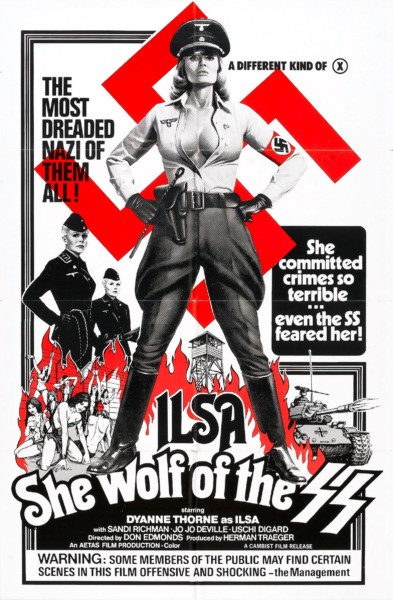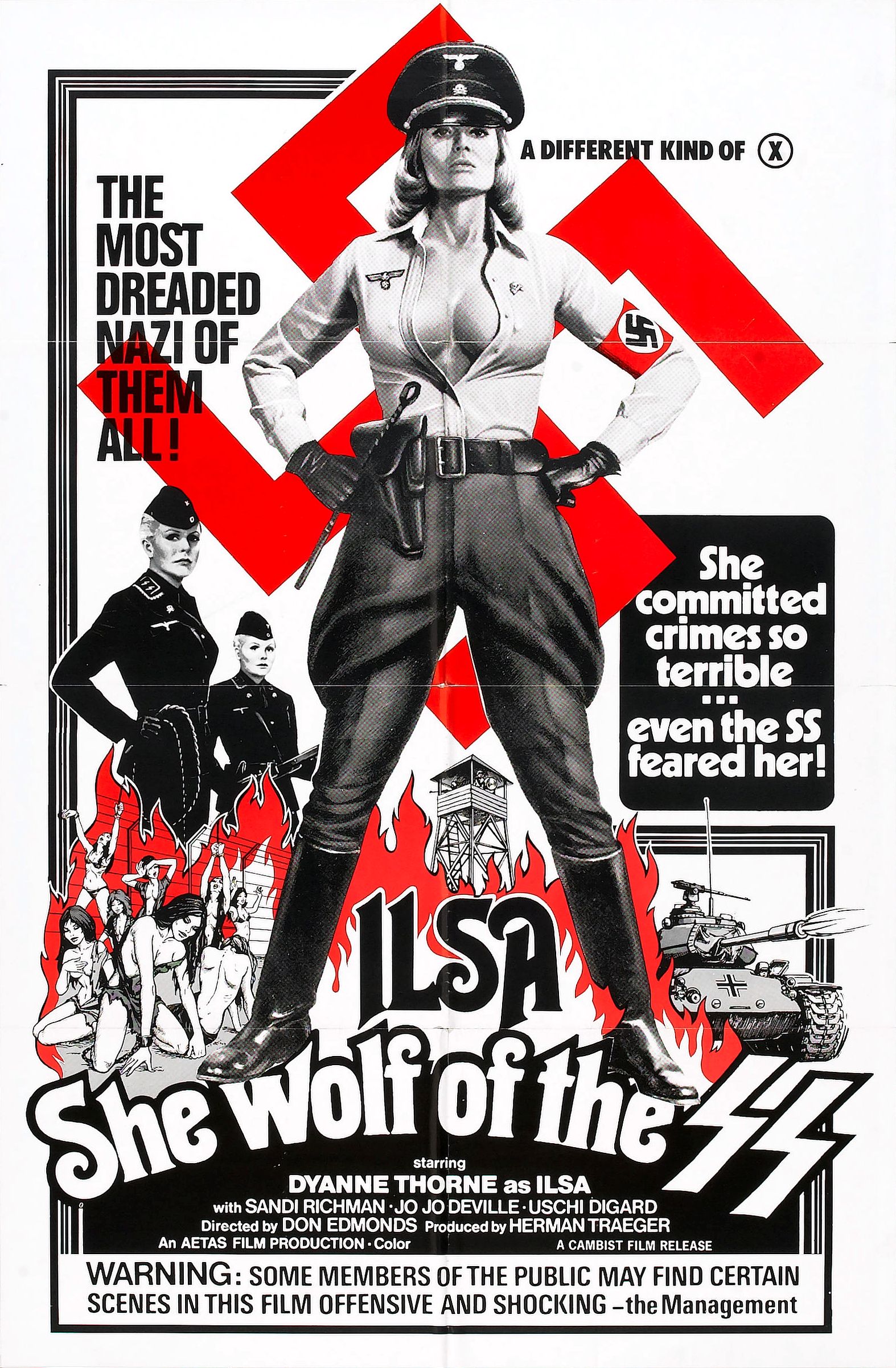I love over-the-top, grindhouse, Tarantino-esque exploitation B-movies as much as the next Nice Jewish Boy™ — but sometimes I wonder if there’s a cut-off for when the blatant mocking of reality goes a little too far.

I’m not talking about the explicit use of sex, drugs, violence and cursing; these elements are the essential cornerstones to making “Night of the Living Dead” or “Shaft.” What I’m talking about is some of the exploitation genre’s off-shoots, the various permutations you find within any fandom or cult following worth its kishkes. Perhaps the most famous subgenre is blaxploitation, now remembered as an icon of 1970s popular culture. Films like “Blacula” and the aforementioned “Shaft” were made by African Americans, for African Americans, and depicted “foxy” mamas and “sex machine” brothers working to take down “The Man,” all to the groovin’ melodies of Isaac Hayes and Curtis Mayfield.
Blaxploitation gave an impassioned cinematic voice to a long-oppressed demographic and influenced popular culture for good. Remember “The Hebrew Hammer” from 2003? Yeah, it’s a parody of the genre — a Jewsploitation film, if you will. The point is that the ostentatious and somewhat silly exploitation film can sometimes be important not only to building our collective culture, but to understanding another group’s individual culture.
This brings me to the topic of Nazisploitation: a sub-genre of sexploitation films — itself a sub-genre — that arose in the late 1960s and turned the German death camps of WWII into pornographic dens of depravity. Instead of committing war crimes, the characters in these movies would commit sex crimes. You can’t make this stuff up, people! If you don’t believe me, look up some of the genre’s choice titles, such as “Ilsa, She Wolf of the SS,” “Deported Women of the SS Special Section,” and, of course, “Love Camp 7.”
Now, you may be asking yourself: “WHY???” Why would anyone want to appropriate the atrocities of the Second World War into something as baseless as fetish and torture porn? Perhaps we can apply the simplicity of Rule 34: If it exists, there’s porn of it. Like the laws of gravity or entropy, it’s unavoidable. When something is brought to existence in this world, its sexual equivalent is created at the same time.
But that doesn’t offer an explanation of why any level-headed person could or would sign off on such a project. Who in their right mind would sign up to write, direct, shoot, light, cater, and act in a film about a Nazi sex dungeon masquerading as a death camp? I get that morals were a little looser back in the 60s, but even in today’s sexed-up culture, is it not reprehensible from a Holocaust remembrance standpoint? Is it not insulting to boil down one of the wickedest genocides in the history of humankind into something as basic as sex?
One could make the argument that, like sex, murdering one another is just another basic primal instinct that’s existed since the dawn of time. But something tells me Nazisploitation isn’t trying to draw that particular parallel. If you’ve ever heard a Holocaust survivor’s story (and if you haven’t, you should), you know these camps were not centers of hedonistic pleasures and lesbian orgies. They were systematic institutions of murder, plain and simple.
The only exception would be Tarantino, who pays homage to the genre without becoming lost in its tropes. “Inglourious Basterds” could be viewed as a modern example of the Nazisploitation film. However, the themes of revenge and justice have a heavy role amid all the sex, cursing, and shoot-em-up violence. A real and engaging story filled with relatable characters is at play amid all the regular clichés that become new in this director’s hands. Things are actually at stake, rather than the setting serving as a vehicle for a simplistic depiction of blatant sex, murder, and any other mindless trappings of the human condition for the mere hell of it.
Not surprisingly, a lot of these sexy Nazi films were made in Italy, which is known for its artsy and avant-garde filmmaking scene. Directors like Ruggero Deodato (“Cannibal Holocaust”) are not known for their restraint when it comes to what can be depicted on screen versus what should be depicted on screen. It’s what guys like Eli Roth (“Hostel,” “The Green Inferno”) try to emulate today with more blood, guts, and miscellaneous gore that, unless you’re into that sort of thing, will turn your stomach like a rickety carnival ride.
In other words, this somewhat “rogue” cabal of exploitation auteurs wishes to push the limits to the absolute breaking point — and, hell, why stop there? They aren’t making family-friendly studio-funded movies for Saturday night matinee enjoyment; they’re artists. And, as we all know, artists love their freedom, even if the end product is something that doesn’t abide by society’s norms.
But does that make it all right to make a mockery of the Holocaust, of the millions slaughtered in cold blood? Does art, and those who create it, have a blank check to do whatever it pleases simply for the sake of work and free expression?
I don’t have the definitive answer, but as the grandson of a Holocaust survivor and a proud Jew, I think it’s important to discuss such things that have the potential to take us further and further away from the real thing until the point when, one day, people might actually believe that Hitler’s Third Reich was nothing but a group of nymphomaniacs. Funny now, scary later, especially to those who lived to tell and pass on the memory of unadulterated evil so that it may never happen again.
Josh Weiss is a student at Drexel University.

